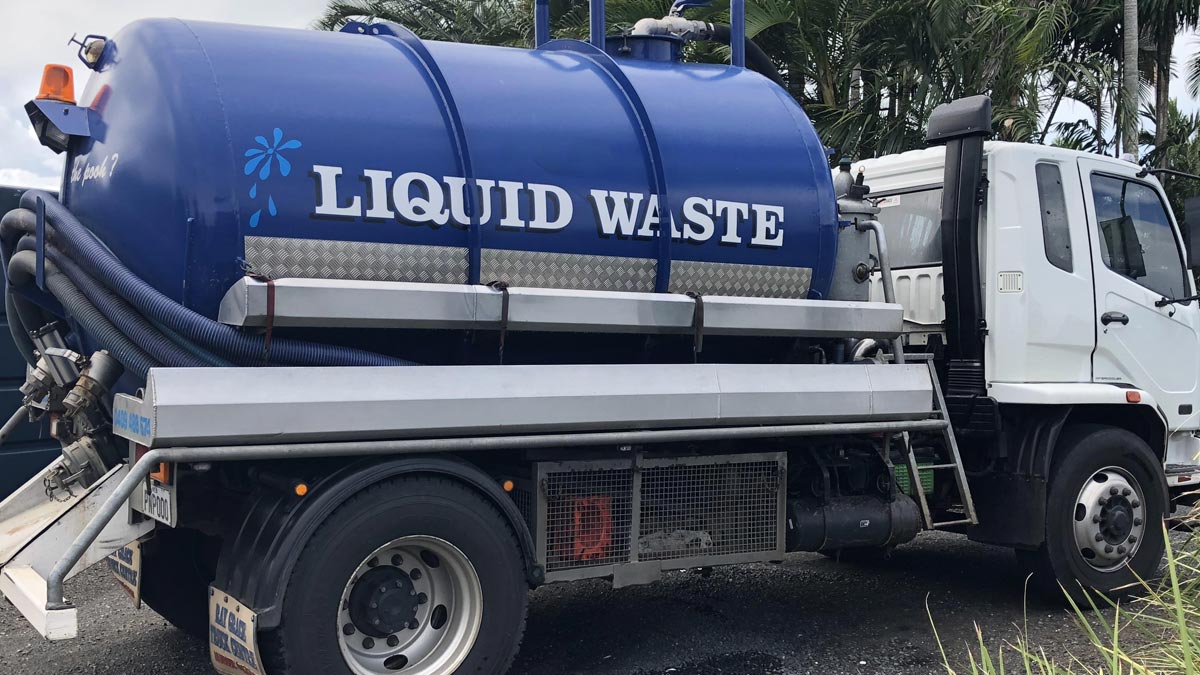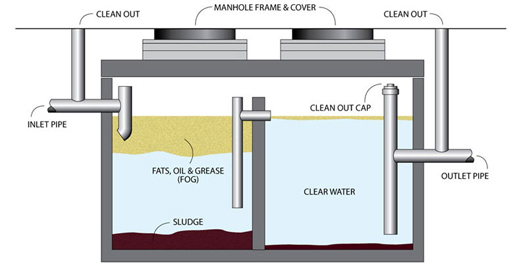Top Liquid Waste Disposal Melbourne: Trusted Services for Correct Waste Administration
Top Liquid Waste Disposal Melbourne: Trusted Services for Correct Waste Administration
Blog Article
Understanding the Comprehensive Process of Liquid Garbage Disposal: Ideal Practices and Environmental Influence Factors To Consider
The monitoring of liquid waste disposal is a complex concern that requires a thorough understanding of various best practices and their linked environmental impacts. From the kinds of liquid waste produced to the methods utilized for collection, treatment, and final disposal, each action plays a crucial function in safeguarding communities and public health.
Sorts Of Liquid Waste
Recognizing the various kinds of fluid waste is necessary for effective management and disposal practices. Liquid waste can be broadly classified into several types, each calling for distinct handling and therapy methods.
Industrial liquid waste typically has hazardous products, including hefty steels, solvents, and chemicals, created throughout producing procedures. These wastes require stringent governing compliance to secure human wellness and the environment. Residential fluid waste mostly refers to wastewater generated from households, including sewer and greywater, which, although much less toxic, can still position substantial risks if incorrectly taken care of.
Agricultural fluid waste, consisting of overflow from farms, often contains plant foods and chemicals that can lead to environmental degradation otherwise dealt with effectively. Medical fluid waste, generated from medical care facilities, includes polluted fluids such as bodily fluids and chemicals, needing specialized disposal methods to avoid infection and environmental contamination.
Lastly, oil and oil waste, normally created by dining establishments and automotive industries, can create severe blockages in sewer systems otherwise managed correctly. Comprehending these groups helps with targeted strategies for therapy, conformity with guidelines, and efficient disposal approaches, eventually advertising ecological sustainability and public wellness security.

Collection Techniques
Reliable collection methods are crucial for the proper monitoring of liquid waste, guaranteeing that it is gathered safely and successfully prior to therapy or disposal. Numerous techniques are utilized depending on the kind of liquid waste produced, the volume, and the specific characteristics of the waste.
One usual method is the usage of devoted collection storage tanks or sumps, which are designed to capture fluid waste at the source. These systems typically integrate pumps that help with the transfer of waste to larger storage space containers or treatment facilities. In addition, mobile collection systems geared up with vacuum technology are utilized in circumstances where waste is generated periodically or in hard-to-reach locations.
For commercial setups, closed-loop systems can successfully minimize spills and leakages, permitting the recovery and reuse of liquid waste. It is likewise essential to educate personnel on appropriate collection procedures to mitigate risks connected with unsafe substances.
Additionally, carrying out normal maintenance schedules for collection devices makes sure optimum efficiency and safety and security. The integration of advanced tracking systems can improve collection effectiveness by offering real-time information on waste degrees and potential dangers. Overall, effective collection methods are foundational to sustainable fluid waste management practices.
Treatment Processes
Treatment processes play a vital role in the management of liquid waste, transforming possibly unsafe products right into secure effluents or multiple-use sources - liquid waste disposal. These processes can be broadly classified right into physical, chemical, and organic techniques, each tailored to deal with particular contaminants present in the waste stream
Physical therapy approaches, such as sedimentation and purification, job by eliminating suspended solids and particulate matter. more helpful hints These methods are often the initial step in the therapy chain, effectively minimizing the tons on subsequent procedures. Chemical treatments involve using reagents to counteract dangerous compounds, precipitate hefty metals, or oxidize natural contaminants, thus enhancing the safety and security of the effluent.
Organic treatment procedures, consisting of triggered sludge systems and anaerobic food digestion, take advantage of the natural capabilities of microbes to degrade natural matter. These techniques are especially try these out effective for wastewater including naturally degradable contaminants. Advanced therapy innovations, such as membrane purification and advanced oxidation procedures, are significantly employed to attain higher degrees of purification.
Integrating a mix of these treatment methods not only makes sure conformity with regulatory standards yet also advertises ecological sustainability by recouping valuable sources from liquid waste.
Disposal Options
How can organizations make sure the responsible and risk-free disposal of fluid waste? Reliable disposal options are vital for guarding public health and the environment. The primary methods include land incineration, treatment, and disposal complied with by discharge right into local wastewater systems.
Land disposal involves the careful control of fluid waste in assigned land fills, guaranteeing that it does not leach into surrounding dirt or water. Incineration, on the other hand, subjects fluid waste to heats, transforming it right into ash and gases, which need appropriate filtering to lessen discharges. This technique appropriates for contaminateds materials that can not be treated through traditional means.
In instances where fluid waste can be treated, organizations might go with organic or chemical treatment procedures to counteract unsafe parts prior to discharging the dealt with effluent right into community systems. This route typically straightens with governing demands, guaranteeing that the effluent meets safety and security criteria.
Eventually, organizations have to carry out extensive assessments of each disposal alternative to identify its practicality, considering aspects such as waste structure, governing compliance, and potential dangers to health and wellness and the setting. By choosing appropriate disposal techniques, services can add to an accountable waste monitoring technique.
Environmental Influence
The environmental impact of liquid waste disposal is a critical consideration for companies looking for to decrease their ecological footprint. Furthermore, the discharge of unattended or inadequately treated waste right into surface area waters can result in eutrophication, leading to oxygen deficiency and the succeeding death of fish click here to find out more and other organisms.

To mitigate these effects, organizations must embrace ideal techniques such as applying rigorous waste treatment procedures, advertising recycling and reuse, and adhering to regulatory criteria. By taking a proactive technique to fluid waste administration, entities can substantially minimize their environmental footprint while sustaining sustainable development objectives. Eventually, an extensive understanding of the environmental influences related to liquid waste disposal is important for informed decision-making and liable stewardship of natural deposits.
Final Thought
Reliable management of liquid waste is critical for securing environmental integrity and public health and wellness. Inevitably, an extensive understanding of fluid waste disposal not just mitigates environmental effects yet also fosters a commitment to liable source management and environmental stewardship.
The administration of fluid waste disposal is a complex concern that requires a complete understanding of numerous ideal practices and their associated environmental impacts. From the types of liquid waste produced to the methods utilized for collection, therapy, and last disposal, each step plays an important duty in guarding ecosystems and public health.The environmental impact of liquid waste disposal is a crucial consideration for organizations seeking to minimize their ecological footprint. Ultimately, a comprehensive understanding of the ecological influences linked with fluid waste disposal is necessary for notified decision-making and liable stewardship of all-natural resources.
Eventually, a detailed understanding of fluid waste disposal not just minimizes environmental influences but also cultivates a commitment to accountable source management and environmental stewardship.
Report this page